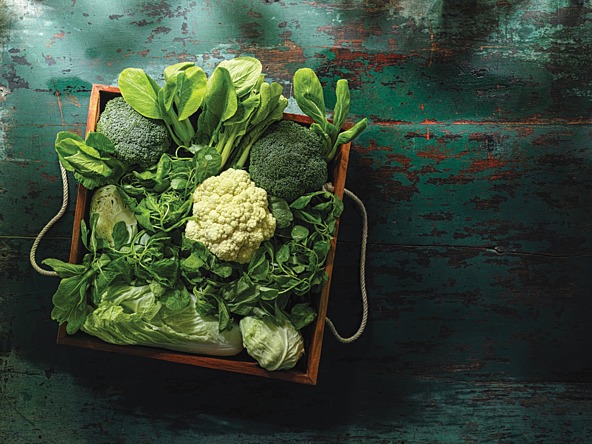FEATURE6 September 2018
Plant power Down Under
x Sponsored content on Research Live and in Impact magazine is editorially independent.
Find out more about advertising and sponsorship.
FEATURE6 September 2018
x Sponsored content on Research Live and in Impact magazine is editorially independent.
Find out more about advertising and sponsorship.
Australia may be one of the world’s biggest meat-eating populations, but that hasn’t stopped it from increasingly embracing plant-based alternatives, according to Mintel. By Shelley McMillan

Consumers all over the world are moving away from meat and we’re seeing the same trend in meat-loving Australia. With an average Australian consuming close to 95kg of meat per year, according to data from the Organisation for Economic Co-operation and Development ( 2018 ), Australia remains one of the world’s largest meat-eating populations. However, health and ethical reasons – as well as the rise of ‘flexitarianism’ – are altering meat-consumption habits across the country.
Mintel research found that almost one-fifth of urban Australians avoided, or were intending to avoid, red meat in 2017 – and half of these consumers stated that they believed it is healthier to do so. Further, ‘No Meat May’ is a campaign and registered charity, founded in Australia in 2013, that challenges consumers to eliminate meat from their diets for 31 days (in May), for four key reasons: health, environment, animals and food security. It is now a global campaign, enjoying incredible growth.
In recent years, Australian consumers have become more mindful of the amount of meat they eat and the frequency with which they eat it. They are trying to better themselves by consuming less meat and eating more vegetables, and are incorporating alternative forms of protein.
More than half of urban Australians said they planned to eat more fruits and vegetables in 2017, while one-tenth said they would follow a plant-based or vegetarian diet, up from just 6% in 2016.
Several other factors are affecting meat consumption – the most important being the increased availability of plant-based food options, because this allows people to cut down on meat.
Consumer movement into plant-based foods aligns with Mintel’s 2017 global food and drink trend ‘Power to the Plants’, which describes how people’s preference for natural, simple and flexible diets is driving expansion of vegetarian, vegan and other plant-focused innovation across multiple product categories.
When it comes to product innovation, our Global New Products Database (GNPD) found that food and drink launches featuring the ‘vegan/no animal ingredients’ claim accounted for 2% of all Australian food and drink launches in 2013. In 2017, it had risen to 5%.
Developments that engineer food and drink staples – such as laboratory-grown meat – have grabbed headlines in the past couple of years, but the resulting products are often expensive, and some are still years away from widespread commercial availability.
That said, companies across the world – both large and small – have taken note of consumers’ move away from meat and are reacting to growing demand for meat-alternative products by investing in the market. This is hastening the pace of its development and the availability of such products. Some of these investments include those by General Mills, Tyson, Cargill, Unilever, and personalities such as Bill Gates and Sergey Brin.
Taking things Down Under, global meat-alternative manufacturer Fry Family Foods has been in Australia for at least two decades and continues to expand across cities. Local firm The Alternative Meat Co launched in Australia in 2016 and expanded into New Zealand in late 2017.
This trend can also be found in Australia’s food-service scene, with eateries serving up meat alternatives – such as tofu – as mains. Melbourne-based vegan eatery The Alley features jackfruit as a key ingredient in one of its burgers; the jackfruit is made to look and taste just like pulled pork.
The meat industry has suffered from several global scandals resulting from poor inspection regimes and issues with supply-chain management. This has caused consumers to question the safety of commercial products.
In our new post-truth reality, shoppers require complete and total transparency from food products. For animal-based proteins, heightened consumer awareness and fear are driving demand for details related to product origin, farming, environmental impact, sustainability and processing.
Meat-alternative producers are not immune to demands for transparency. They will also need to demystify ingredients and reassure consumers that these are ‘clean’ and ethically sourced. According to our research, more than one in three urban Australians prefer to buy products that are produced using sustainable sourcing methods, while almost one-third are willing to pay a premium for everyday goods that are safe to use – for example, they have no additives, or do no harm to the body.
This is also reflected in Mintel’s trend ‘Buydeology’, which underscores the need for meat-alternative manufacturers to pay close attention to ingredient purity – as well as to sourcing ethics – when catering to consumers who are increasingly basing their purchasing decisions on a company’s ethical stance.
Shelley McMillan is an associate director, consulting, Australia and New Zealand, at Mintel
This article was first published in Issue 22 of Impact.
0 Comments